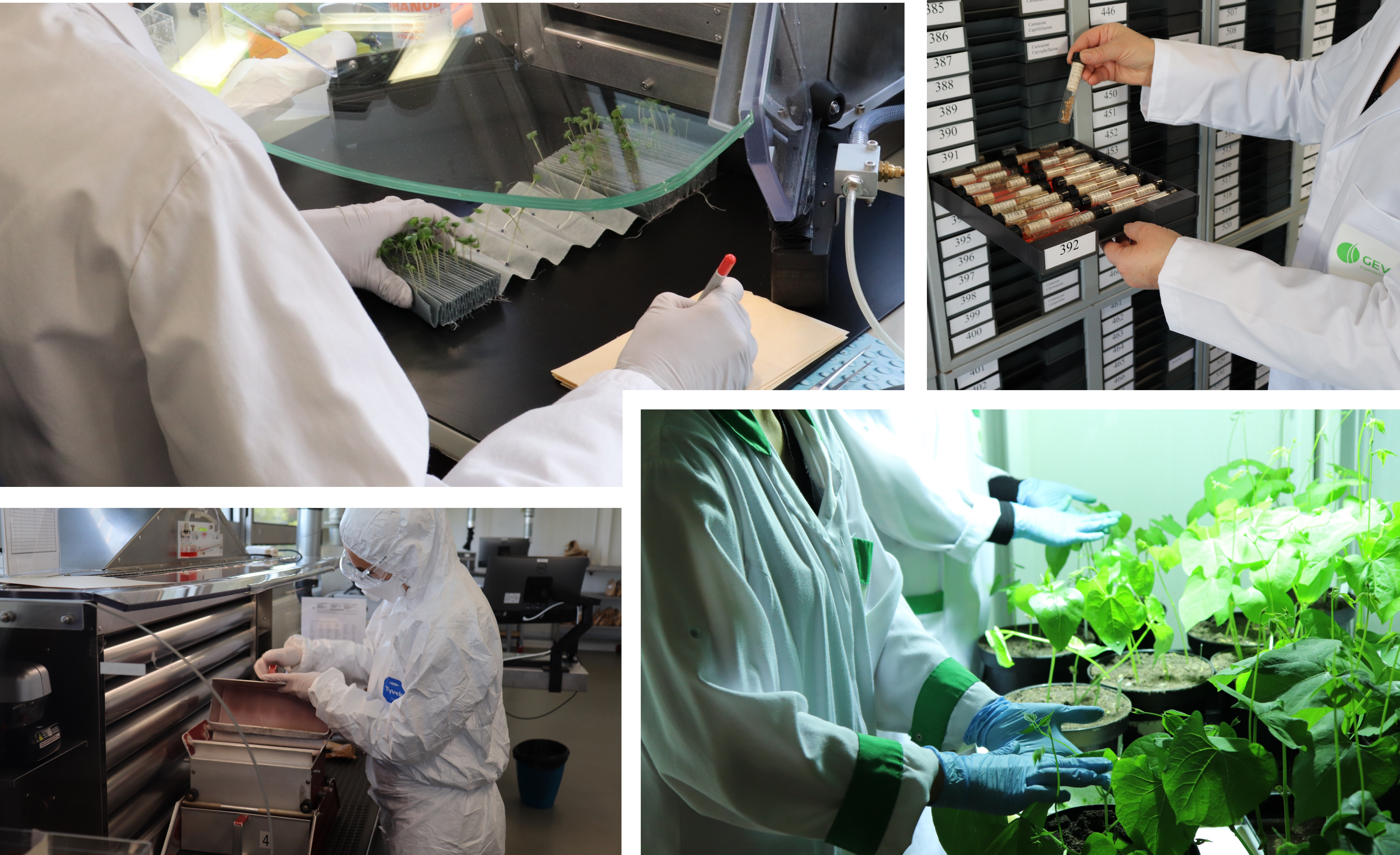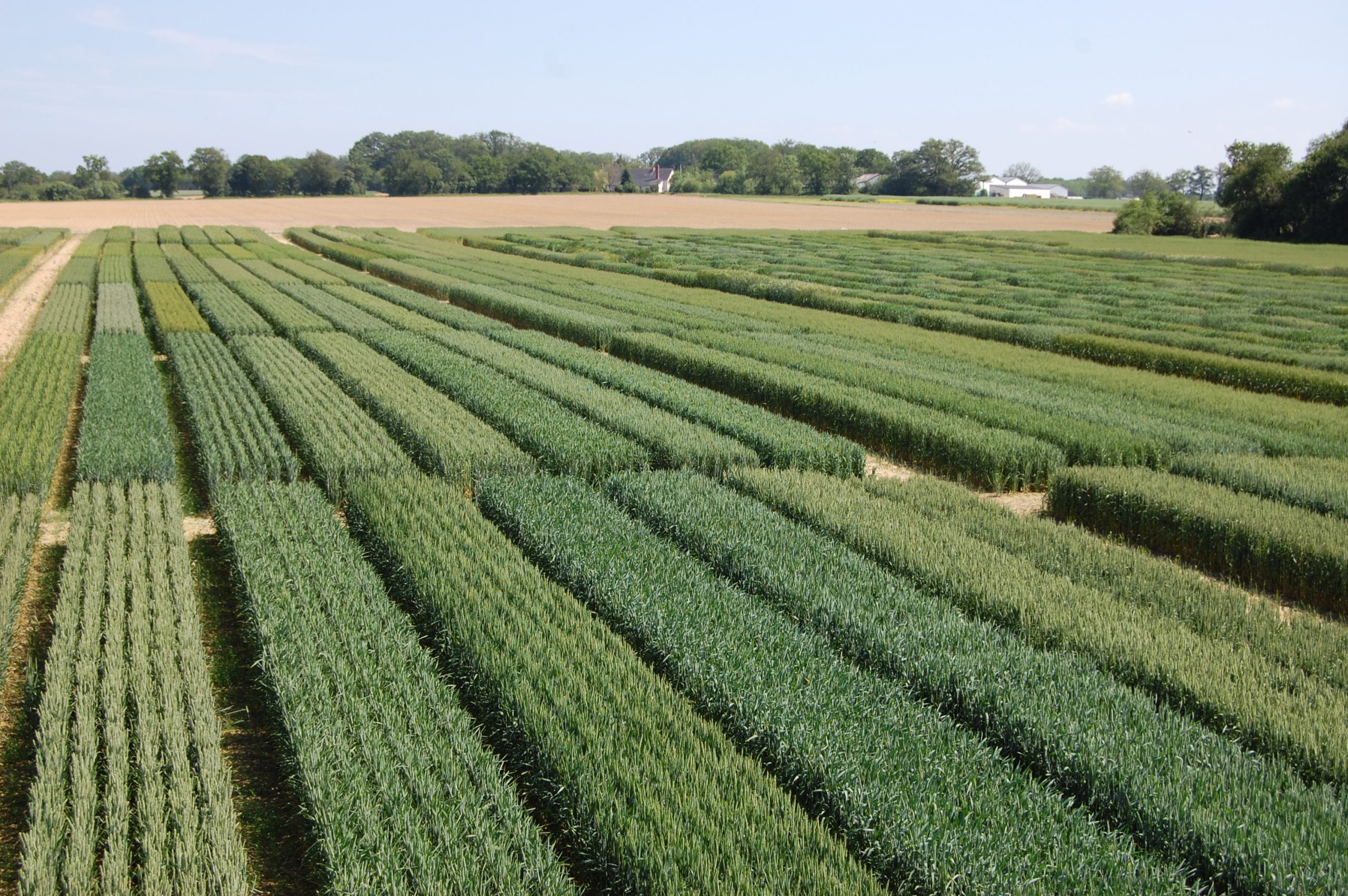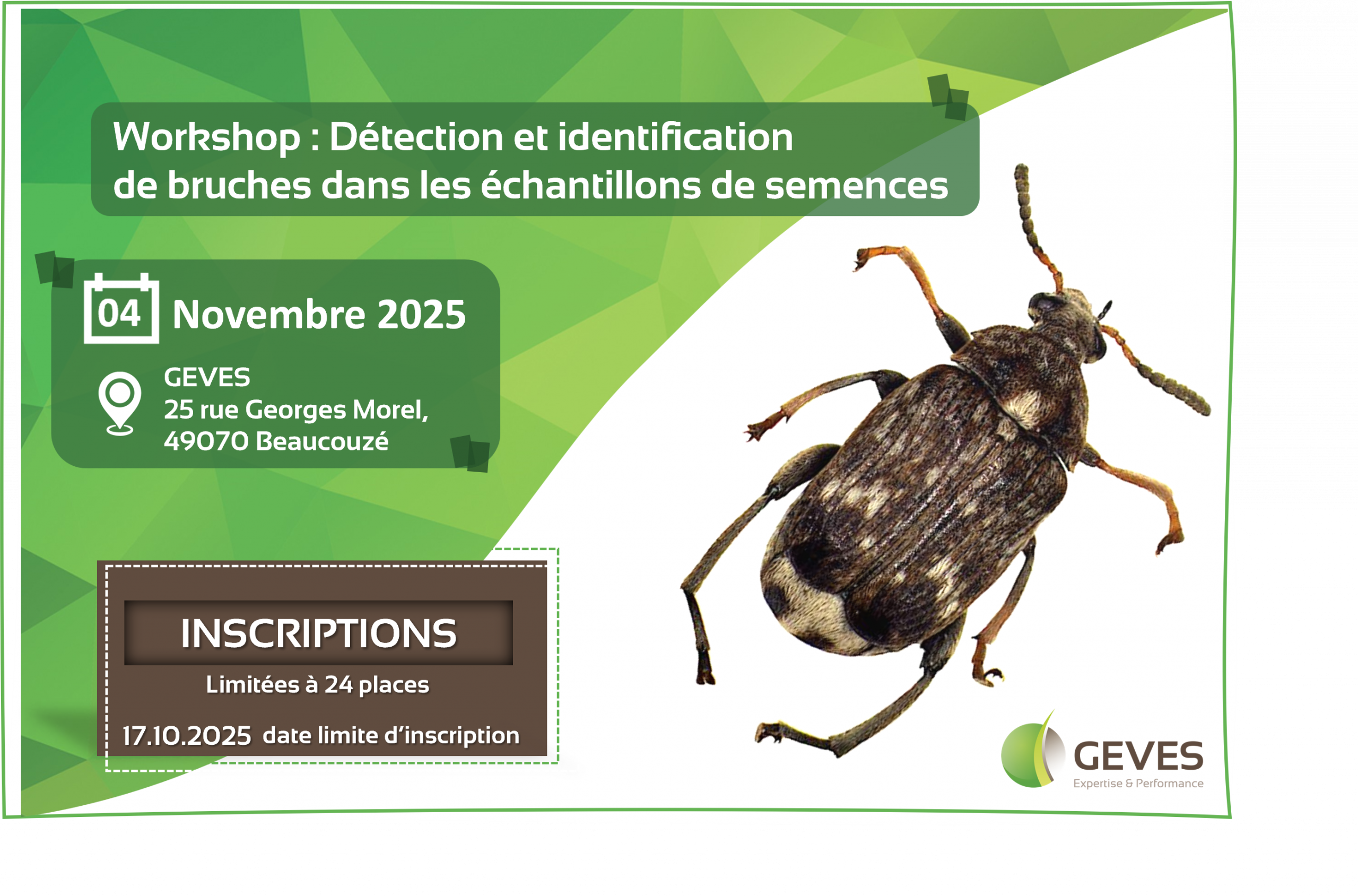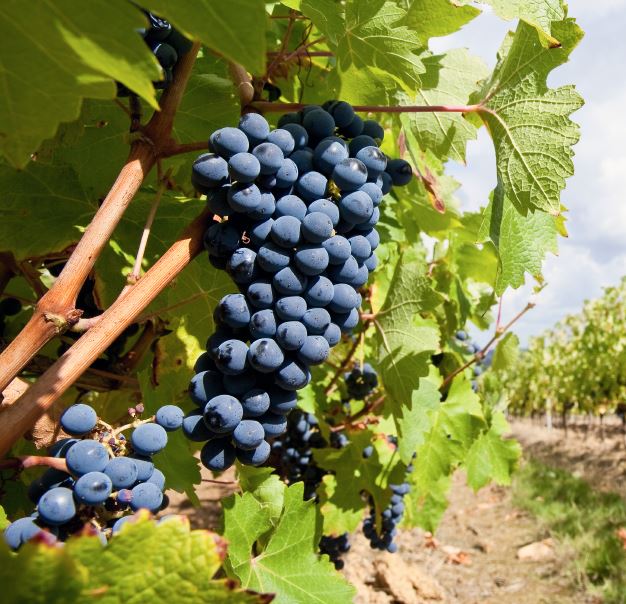
A new scientific policy at GEVES
Research at GEVES for the 2018-2022 period will focus on the evaluation of variety performance, variety description and characterisation, and seed quality analysis. The aim is to characterise seeds and varieties more accurately and quickly, and to take account of new aspects for their evaluation. This research will draw on expertise in pathology, phenotyping, molecular biology, and data processing.
Description and characterisation of varieties
Research conducted at GEVES to optimise the management of reference collections has led to the combined use of phenotypic and genetic distances for certain species to reduce the number of variety field comparisons in DUS trials. Further work is needed to increase the number of species on which this approach can be used, and to refine the approach. The approach of using molecular biology to describe and characterise varieties when they are registered or protected will also be extended to include distinction and uniformity aspects. The work undertaken on the characterisation of seed lots for varietal identification (notion of thresholds and genetic distances) in the case of resupplying of seed lots will be continued and intensified.
Assessment of varietal performance
In the face of climate change and large year-to-year variations in growing conditions, coupled with the expected reduction of pesticide use, plant varieties and seeds must contribute to production systems with robust performance. Varieties will have to be adapted to a wider range of practices, and will contribute to reducing the pressures of agricultural practices on the environment in a transition to agro-ecological agriculture. To make progress in this direction, it is particularly important to strengthen the evaluation of varieties in relation to current and future agricultural practices, and the food and crop systems in which they are used. The consideration of various limiting factors significantly impacting the agronomic and technological value of the species studied requires a diversification of the experimental conditions. Methods are being investigated for the characterisation of biotic and abiotic stresses and associated varietal responses. It is also necessary to develop statistical tools for the analysis of GEMs and modelling to evaluate varietal behaviour, in particular to research and develop statistical tools and methods.
Assessment of seed quality
The development of new cultivation methods and seed technologies will lead to an evolution of the methods and tools used to evaluate the quality of seeds and seedlings. The work to be carried out within GEVES will have to take into account changes linked to the reduction in inputs, the postponement of sowing dates, the evolution of cultivation methods under controlled conditions such as the production of plants, the increased use of mixtures of species and varieties and the use of new seed technologies. These different changes will have various consequences on lot sampling, physical, germination and seed health quality.




